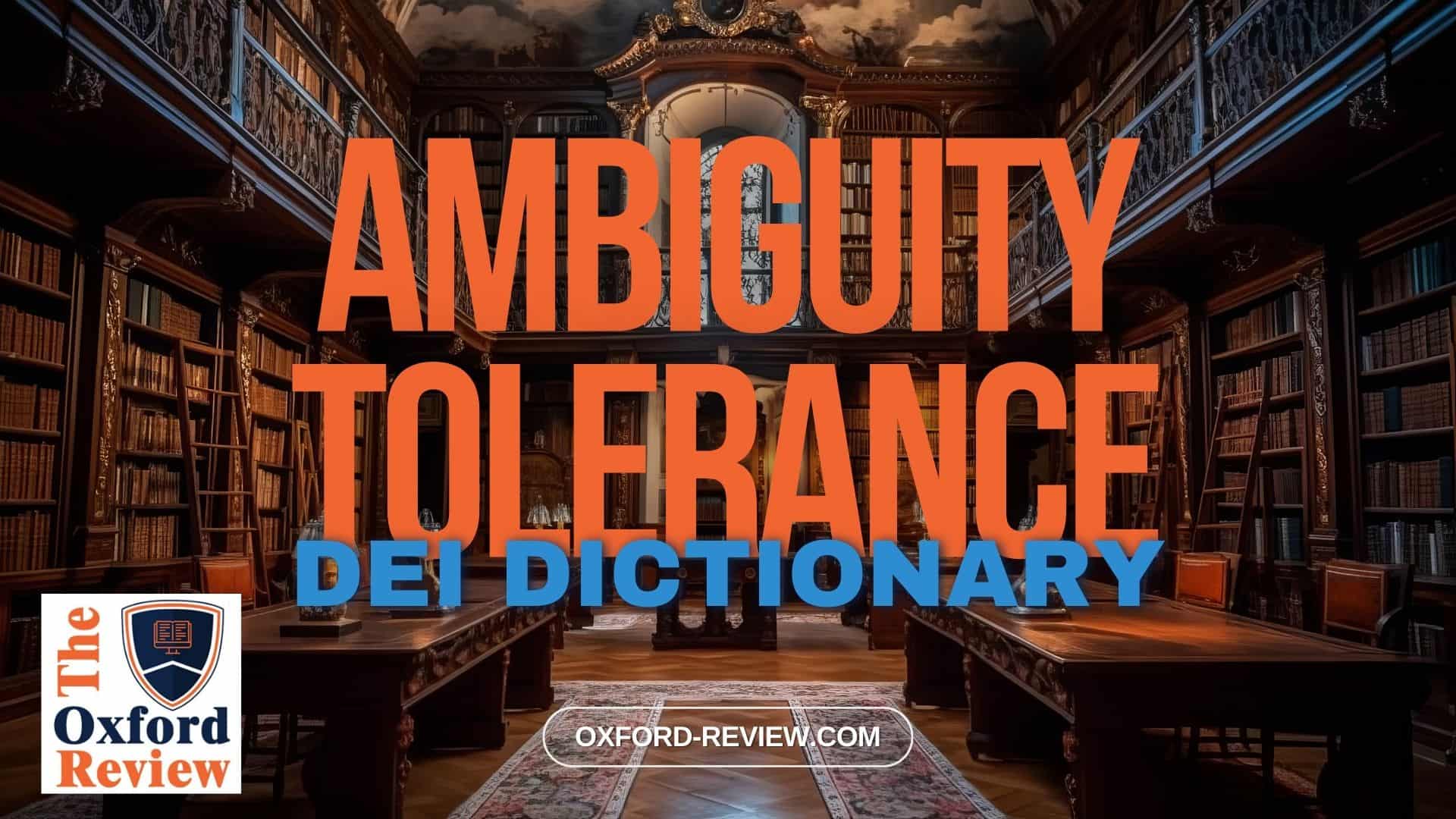Ambiguity Tolerance – Definition and Explanation

Understanding Ambiguity Tolerance in DEI: A Key Trait for Inclusive Environments
Within the realm of Diversity, Equity, and Inclusion (DEI), nurturing an environment where individuals feel valued and respected irrespective of their differences is paramount. One crucial attribute contributing to such inclusive cultures is Ambiguity Tolerance.
Definition:
Ambiguity Tolerance refers to an individual’s capacity to navigate and tolerate uncertain or unclear situations without experiencing undue stress or discomfort. It involves embracing complexity, adapting to change, and maintaining an open-minded approach when confronted with unfamiliar or ambiguous circumstances. In the context of DEI, Ambiguity Tolerance plays a pivotal role in fostering empathy, understanding, and acceptance across diverse backgrounds and perspectives.
Importance:
- Enhanced Collaboration: Individuals with high Ambiguity Tolerance can collaborate effectively with colleagues from diverse backgrounds. They navigate cultural nuances, communicate across differences, and leverage varied perspectives to drive innovation and problem-solving.
- Reduced Bias: Ambiguity Tolerant individuals are less likely to stereotype or make snap judgments based on limited information. They approach situations with an open mind, challenging preconceived notions and biases that may impede inclusivity.
- Promotion of Inclusive Leadership: Leaders with Ambiguity Tolerance cultivate inclusive environments by embracing uncertainty and encouraging diverse voices within their teams. They empower employees to express themselves authentically, fostering a sense of belonging and psychological safety.
- Adaptability: In rapidly evolving workplaces, Ambiguity Tolerance is a valuable asset. Individuals who are comfortable with ambiguity can adapt to changes seamlessly, whether it’s organizational restructuring, shifting priorities, or evolving DEI initiatives.
Example:
Consider a multinational corporation launching a DEI initiative aimed at fostering inclusivity within its workforce. An employee with high Ambiguity Tolerance might eagerly embrace this initiative, recognising the importance of diversity and willing to navigate the complexities inherent in such efforts. They may actively participate in diversity training sessions, engage in cross-cultural dialogue, and champion inclusive practices within their team. In contrast, an individual with low Ambiguity Tolerance might feel overwhelmed by the uncertainty surrounding the initiative, resist engaging in uncomfortable conversations, or cling to familiar ways of thinking, inadvertently undermining DEI efforts.
Conclusion:
In the pursuit of creating truly inclusive environments, cultivating Ambiguity Tolerance is essential. By fostering this trait within individuals and organisations, we can navigate the complexities of diversity, equity, and inclusion with empathy, understanding, and resilience. Embracing ambiguity not only strengthens our ability to collaborate across differences but also paves the way for innovation, growth, and meaningful change in the DEI landscape.
References:
Norton, R. W. (1975). Measurement of ambiguity tolerance. Journal of personality assessment, 39(6), 607-619. https://www.tandfonline.com/doi/abs/10.1207/s15327752jpa3906_11
Mac Donald Jr, A. P. (1970). Revised scale for ambiguity tolerance: Reliability and validity. Psychological reports, 26(3), 791-798. https://journals.sagepub.com/doi/abs/10.2466/pr0.1970.26.3.791
McLain, D. L., Kefallonitis, E., & Armani, K. (2015). Ambiguity tolerance in organizations: definitional clarification and perspectives on future research. Frontiers in psychology, 6, 122037. https://www.frontiersin.org/journals/psychology/articles/10.3389/fpsyg.2015.00344/full
Be impressively well informed

Get the very latest research intelligence briefings, video research briefings, infographics and more sent direct to you as they are published
Be the most impressively well-informed and up-to-date person around...
